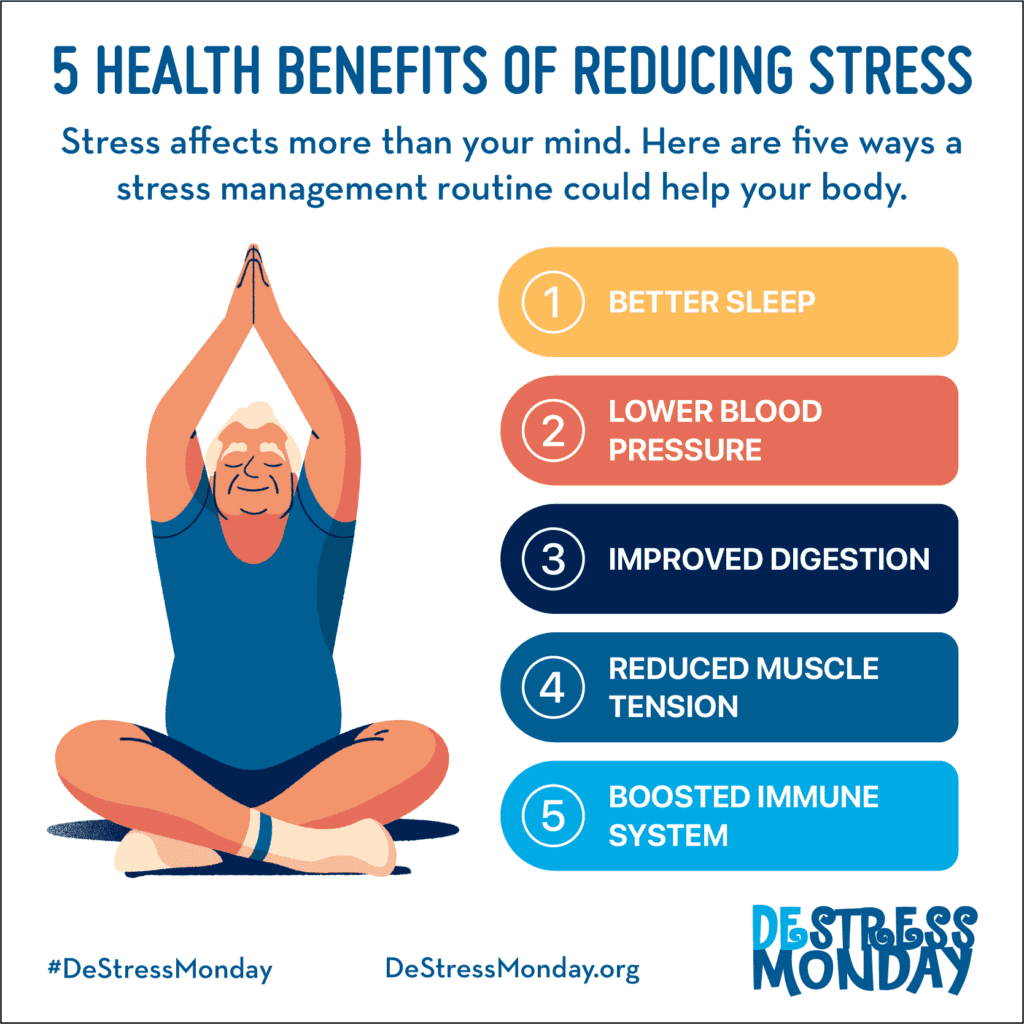The Health Benefits of Reducing Stress
It’s hard to see the benefits of stress, but this automatic response to feelings like nerves or fear is actually an evolutionary defense mechanism that was necessary for survival. When faced with a threatening situation, our ancestors relied on stress to flood the body with hormones that would raise their heart rate, increase blood pressure, and prepare them to fight or escape.
But since we no longer have to worry about looming lions or other long-tooth predators, stress has become more burden than evolutionary boon.
Starting each week with a DeStress Monday activity can help you develop a more consistent healthy routine. This Monday, understand how stress affects your health, and learn how you can use techniques to reduce your stress levels.
The Dangers of Chronic Stress
Stress affects everyone differently, ranging from a minor nuisance to a debilitating condition that makes day-to-day living difficult. Chronic stress experienced over a period of months or years can cause lasting damage to both the mind and body, making you feel fatigued, distracted, or irritable. Severe forms of stress, such as depression, may also result in an increased risk of cardiovascular disease, headaches, heartburn, high blood pressure, and high blood sugar levels.
But stress also leads to other destructive behaviors. As people attempt to cope with the unpleasant emotions associated with stress, they often rely on other unhealthy habits such as overeating, smoking, and drinking.
The Benefits of Reducing Stress
Reducing your stress is like taking a weight off of your shoulders. Besides alleviating internal tension, lower stress levels will protect your health in the long term.
Here are five ways a stress relief routine can help your body:
Better sleep
Insomnia is common among adults and is often caused by stress and anxiety. Practicing a few key stress management techniques before bed can help make falling asleep easier and improve the quality of your sleep.
Lower blood pressure
High blood pressure can lead to many serious illnesses, and experts recommend a variety of stress-reducing activities – such as deep breathing and yoga – for lowering blood pressure in high-stress moments and over the long term.
Improved digestion
Many studies have noted the connection between stress and gastrointestinal disorders. Common stress reduction techniques like mindfulness meditation can help lower inflammation in the gut and relax your digestive system as well as your mind.
Reduced muscle tension
Muscle tension is one of the common symptoms of stress. One of the best ways to reduce muscle tension is Progressive Muscle Relaxation, a popular meditation practice that targets core muscle groups and relaxes them one by one.
Boosted immune system
Chronic stress can tax the immune system in a number of ways. Maintain your mental wellness with a regular self-care routine and you’ll also help keep your immune system in top form.
There are other ways to address stress, too. Building strong relationships with your family, friends, and colleagues can provide an outlet for support. Knowing how to handle emotional situations is another useful tool in minimizing the negative effects of stress.
For weekly stress relief tips and practices, as well as exercise and diet inspiration, subscribe to the Healthy Monday newsletter.
